The International Transportation Economics Association (ITEA) is pleased to announce that the ITEA Conference and ITEA Annual School on Transportation Economics for 2025 will be hosted by the Northwestern University Transportation Center in Evanston, Illinois, United States. The University is on the shores of Lake Michigan, 12 miles north of downtown Chicago.
IMPORTANT DATES
- February 28, 2025 - Extended abstract submission deadline.
- April 1, 2025 – Registration opens.
- April 15, 2025 - Notification of extended abstract acceptance (qualified to present at ITEA 2025).
- May 9, 2025 - Deadline for early-bird registration, which is required for an accepted paper to secure a place on the program. Also the deadline for full paper upload for those papers to be considered for paper prizes.
- June 23-25, 2025 – ITEA Annual School. The School runs from lunchtime on Monday to lunchtime on Wednesday.
- June 25-27, 2025 – ITEA Annual Conference. The conference runs from early afternoon on Wednesday to late afternoon on Friday.
Contact Ian Savage for more information.
The Local Organizing Commitee
- Meghan Busse
- Pablo Durango-Cohen
- Hani Mahmassani
- Marco Nie
- Ian Savage
- Amanda Stathopoulos
Northwestern University Transportation Center
Established in 1954 by industry representatives, Northwestern University Transportation Center (NUTC) was the first US-based university transportation center and has been recognized as a leading interdisciplinary education and research institution serving industry, government and the public ever since. NUTC aims to influence national and international transportation policy, management, operations, and technological developments.
For additional information about registration, abstracts and paper submissions, location and hotel accommodations, organizing committees, the host organization and more, please click on the tabs below.
ITEA Annual School and Conference
Submit Abstract
The abstract submission portal is closed.
You are invited to submit an extended abstract (2-4 pages or 400-1000 words).
- Go to https://editorialexpress.com/conference/ITEA2025
- Log in with your existing Conference Maker credentials or create an account.
- An extended abstract of 2-4 pages or 400-1000 words is required.
- Option A (preferred) upload a pdf of your extended abstract in the "enter your submission" section. Your pdf abstract should contain title, author(s), research question, methodology, and expected results.
- Option B: enter the text of your extended abstract in the text box (note formatting will be lost).
- ITEA covers all modes, intermodal analysis, and all aspects of transportation economics. To facilitate division of labor within the scientific committee please select the primary mode your abstract deals with from the “area” pulldown:
- Aviation
- Maritime
- Rail (freight and intercity passenger)
- Road (including road freight, cycling, and parking)
- Urban mass transit (bus, metro, light rail, local rail)
- All other abstracts
- No need to enter any keywords or upload any slides
Please note that an author may only present one paper at the conference. If multiple papers by the same author are accepted, either one must be withdrawn or presented by a co-author.
Prizes
Two prizes will be awarded at the ITEA Annual Conference: the Best Paper by a Junior Researcher and the Best Overall Paper.
Eligibility requirements for the Best Paper by a Junior Researcher prize:
- The presenter must be the junior researcher.
- The junior researcher cannot have received their PhD more than four calendar years ago.
- Coauthors may be senior scholars, but they cannot belong to the Scientific Committee.
- In case of coauthored papers with senior researchers, the junior researcher is requested to accompany their paper with a statement explaining their precise contribution.
- When submitting a paper, the junior researcher must declare on the title page of the paper that they are a junior researcher and that they want to be considered for the prize.
- A person who declares themselves to be a junior researcher remains eligible to win the Best Overall Paper prize that year.
- No person who has won the Best Paper by a Junior Researcher prize can win it again, but they are eligible to win the Best Overall Paper prize in the future.
- The Scientific Committee may decide not to award the Best Paper by a Junior Researcher prize in a given year.
Eligibility requirements for the Best Overall Paper prize:
- Neither the presenter nor any coauthor can belong to the Scientific Committee.
- A member of the Executive Committee or School Committee not belonging to the Scientific Committee can be presenter or coauthor of a paper winning the Best Overall Paper prize.
- When submitting a paper, the presenter must declare on the title page of the paper that they want to be considered for the prize.
- Previous winners of the Best Overall Paper prize are eligible to win it again.
- The Scientific Committee may decide not to award the Best Overall Paper prize in a given year.
Register
Discounted “early bird” rates until May 9. Presenters of accepted paper must register by May 9 to secure a place on the program. Conference fees increase by $150 after May 9.
ITEA members receive a discount on the registration fee that is roughly equivalent to the annual membership dues. You can join ITEA at:
https://itea.science/membership-fee/
Registering at the higher non-member price does not grant membership.
|
Early Bird Rates until May 9
|
Regular | Full-time US and Canadian Student | Full-time Student Rest of the World |
| Conference - ITEA member | $750 | $450 | $360 |
| Conference - Non-member | $825 | $525 | $435 |
| Add School to Conference | $450 | $325 | $260 |
Fees for the conference include access to all sessions, lunch on Wednesday, Thursday and Friday, a reception on Wednesday evening, a dinner cruise on Lake Michigan on Thursday evening, and mid-morning and mid-afternoon refreshment breaks. You can bring a guest to the dinner cruise for $125. Fees for the School include access to all sessions and class materials, and all meals, refreshment breaks and social networking events from Monday lunchtime through Wednesday morning. All conference rates increase by $150 after May 9.
Refund Policy: Full refunds (less a 10% processing fee) prior to May 9, 50% refund between May 10 and June 2. No refunds after June 3. Direct refund requests to Ian Savage.
Attendees requiring an invitation to obtain a visa to the United States should e-mail Ian Savage, and specify in their e-mail (a) their full name as shown in their passports, (b) their business address, and (c) whether or not they are presenting a paper. A visa letter will be e-mailed within 2 business days.
Register at the links below.
You need to uncheck any items that are not applicable to you.
- UNCHECK "Conference – Non-member" if you are an ITEA member. You can join ITEA at: https://itea.science/membership-fee/.
- UNCHECK "Conference – ITEA member" if you are not an ITEA member. The higher, non-member price does not grant membership.
- UNCHECK "Add School to Conference" if you are only attending the conference.
- UNCHECK "Additional Guest Ticket to Dinner Cruise" if you are not bringing a guest to the dinner cruise (all conference registrations include the dinner cruise for one person).
Click here for Regular Registrations
Click here for Full Time US and Canadian Student Registrations
Click here for Full Time Student from the Rest of the World Registrations
Annual School
The aim of the ITEA Annual School is to provide young researchers as well as practitioners with a high-quality introduction to academic research on transportation economics, including many recent advances in the field. The School’s program consists of a series of lectures and tutorials conducted by some of the most prominent researchers in transportation economics.
Session 1: First-best Road Pricing
Learning Objectives:
- Learn how to model first-best road pricing.
- Understand static and dynamic model of congestion.
- Understand criteria for optimal capacity investment.
Instructor:
Jonathan Hall (University of Alabama, USA)
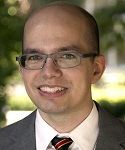 Jonathan Hall is an applied microeconomist. His research strives to improve urban transportation systems by focusing on three broad themes. First, understanding and addressing traffic congestion. Second, evaluating the impacts of new transportation technologies on cities. Third, improving transportation safety. His research uses a variety of theoretical and empirical methods, including structural and reduced-form approaches, to address these themes. He is the chair of the ITEA Scientific Committee.
Jonathan Hall is an applied microeconomist. His research strives to improve urban transportation systems by focusing on three broad themes. First, understanding and addressing traffic congestion. Second, evaluating the impacts of new transportation technologies on cities. Third, improving transportation safety. His research uses a variety of theoretical and empirical methods, including structural and reduced-form approaches, to address these themes. He is the chair of the ITEA Scientific Committee.
Session 2: Urban Public Transportation
Learning Objectives:
- Gain an understanding of the economics of public transportation.
- Learn how to model a transit system by highlighting its main specific features.
- Appreciate that some costs are born by operators while other costs are borne by users.
- Understand that economies of scale and density can derive both from the production function of the operator and from the costs incurred by riders (“the Mohring effect”).
- Learn how to model optimal fares and frequences and how actual choices by operators may deviate from optimal outcomes.
- Understand the mechanism for evaluating subsidies.
- Learn how transit subsidies can be used as a second-best alternative to tackling road congestion
- Understand the key considerations in the choice between public and private provision of transit services.
Instructor:
Ian Savage (Northwestern University, United States)
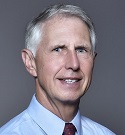
Ian Savage’s research has been concentrated in two areas: urban public transportation, and transportation safety. He has published widely on the economics of transit finances and operations. He has conducted research into the safety performance, and the effectiveness of safety regulations, in most modes of transportation -- with particular emphasis on the trucking and railroad industries.
Session 3: Second-best Road Pricing
Learning Objectives:
- Understand the technical, political, and societal constraints on implementation of first-best road pricing.
- Learn about other market failures and distortions that coexist with road congestion.
- Understand how second-best analysis becomes the relevant framework when there are practical policy constraints and other distortions.
- Learn about possible second-best transportation policies and the methods that can be used to design and evaluate these alternative policies.
Instructor:
Erik Verhoef (Vrije Universiteit Amsterdam, The Netherlands)
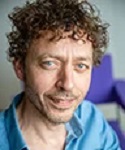 Erik Verhoef’s research focuses on efficiency and equity aspects of transportation and urban spatial systems. Important research themes include second-best regulation, network and spatial analysis, the tension between efficiency and equity and social acceptability, behavioral modelling, and policy evaluation. He is the current president of ITEA and is a past founding co-editor of Economics of Transportation.
Erik Verhoef’s research focuses on efficiency and equity aspects of transportation and urban spatial systems. Important research themes include second-best regulation, network and spatial analysis, the tension between efficiency and equity and social acceptability, behavioral modelling, and policy evaluation. He is the current president of ITEA and is a past founding co-editor of Economics of Transportation.
Session 4: Environmental Economics and Transportation
Learning Objectives:
- Learning the distinction between local (air pollution, noise) and global environmental issues (climate) that require different governance and policy instruments.
- Learn about static and dynamic environmental costs.
- Appreciate the effects of different policy instruments including taxes, permits, standards, and land use regulation.
- Understand the role of international treaties and energy market interactions to address climate issues.
- Understand how issues and instruments vary by mode including both surface transportation and aviation.
Instructor:
Stef Proost (KU Leuven, Belgium)
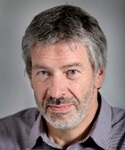 Stef Proost is an emeritus professor of transport, environmental and energy economics at KU Leuven. His recent research focuses on decarbonization of the transportation sector (cars, trucks, aviation, maritime) and the political economy of transportation policies. He has been advising international and national governments on transport, environmental and energy policies.
Stef Proost is an emeritus professor of transport, environmental and energy economics at KU Leuven. His recent research focuses on decarbonization of the transportation sector (cars, trucks, aviation, maritime) and the political economy of transportation policies. He has been advising international and national governments on transport, environmental and energy policies.
Session 5: Transportation Cost-Benefit Analysis
Learning Objectives:
- Explore the various aspects of cost-benefit analysis (CBA) in the context of evaluating and justifying transportation investments.
- Understand technical considerations such as accessibility, the logsum, and the use of consumer surplus as a measure of benefits.
- Explore how to evaluate the benefits gained by new users.
- Appreciate the reliability and robustness of CBA and its overall significance in decision-making.
- Understand how issues such as project cost overruns and demand shortfalls present challenges in the evaluation process.
- Learn how equity, including equity in travel time savings, is treated within CBA.
- Reflect on the broader implications and complexities associated with the application of CBA in transport investment decision processes.
Instructor:
Maria Börjesson (VTI - The Swedish National Road and Transport Research Institute and Linköpings Universität, Sweden)
 Maria Börjesson’s research interests include transportation cost-benefit analysis, appraisal, and sustainability. Her research has dealt with distribution and equity effects including the role of gender, and the evaluation of non-market aspects of transportation. She has also analyzed policy and pricing for all modes including active mobility and cycling. She is also active in survey design, choice experiments and travel behavioral modeling. She is the immediate past-president of the ITEA.
Maria Börjesson’s research interests include transportation cost-benefit analysis, appraisal, and sustainability. Her research has dealt with distribution and equity effects including the role of gender, and the evaluation of non-market aspects of transportation. She has also analyzed policy and pricing for all modes including active mobility and cycling. She is also active in survey design, choice experiments and travel behavioral modeling. She is the immediate past-president of the ITEA.
Session 6 has two variants that participants can choose when registering.
Session 6a: Empirical Tutorial
Learning Objectives:
- Engage in introductory exercises focusing on either linear regression or discrete choice models.
- Learn to work with either R or STATA.
- Gain experience in estimating linear regression or discrete choice models, or familiarize yourself with R or STATA.
Instructor:
Stefanie Peer (WU Vienna University of Economics and Business, Austria)
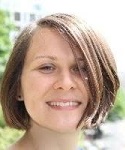 Stefanie Peer is a professor at the Department for Socioeconomics and head of the Research Institute for Spatial and Real Estate Economics at WU Vienna. Her research concerns mobility and time use behavior of individuals, usually employing quantitative empirical approaches and discrete choice models. She heads the ITEA school committee.
Stefanie Peer is a professor at the Department for Socioeconomics and head of the Research Institute for Spatial and Real Estate Economics at WU Vienna. Her research concerns mobility and time use behavior of individuals, usually employing quantitative empirical approaches and discrete choice models. She heads the ITEA school committee.
Session 6b: Roundtable Discussions
Learning Objectives:
- Engage in roundtable meetings with one of the instructors at the school.
- Delve into discussions about your own research or related topics.
Instructors:
All of the school instructors.
Session 7: Travel Time Variability
Learning Objectives:
- Learn about the microeconomic theory underlying the quantification and valuation of travel time variability.
- Explore empirical examples that support the theory.
- Understand how the physics of travel flow affects travel time variability.
Instructor:
Mogens Fosgerau (University of Copenhagen, Denmark)
 Mogens Fosgerau is a mathematical economist. His research deals with discrete choice theory and practice, travel time variability and scheduling, route choice, traffic congestion, urban form, and the value of travel time. He was founding co-editor of Economics of Transportation. He is also active in the Danish transport and climate policy debate.
Mogens Fosgerau is a mathematical economist. His research deals with discrete choice theory and practice, travel time variability and scheduling, route choice, traffic congestion, urban form, and the value of travel time. He was founding co-editor of Economics of Transportation. He is also active in the Danish transport and climate policy debate.
Session 8: Economics of Airline Networks
Learning Objectives:
- Understand the implications of hub-and-spoke networks in airlines’ strategic decisions.
- Learn how to analyzes the effect of airline partnerships such as alliances, joint ventures, and mergers in the presence of network effects.
- Learn about the difference approaches when network carriers, regional carriers and low-cost carriers decide to serve new routes either directly or indirectly.
- Learn how to analyzes the effects of airport congestion and the optimal design of landing fees.
Instructor:
Ricardo Flores-Fillol (Universitat Rovira i Virgili, Spain)
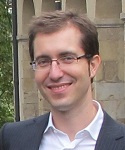 Ricardo Flores-Fillol’s research focuses on industrial organization, air transportation economics, and urban economics. In particular, he has analyzed the diverse types of competition in the airline industry and the economics of airline alliances. He has served as chair of the Scientific Committee at ITEA and is currently the treasurer of the Association.
Ricardo Flores-Fillol’s research focuses on industrial organization, air transportation economics, and urban economics. In particular, he has analyzed the diverse types of competition in the airline industry and the economics of airline alliances. He has served as chair of the Scientific Committee at ITEA and is currently the treasurer of the Association.
The instructors have accepted the offers to teach and specified their topics. However, topics and instructors are subject to change in the event of unexpected instructor illness or travel difficulties.
Conference
The aim of the ITEA Annual Conference is to promote scientific excellence in the field of transportation economics and to provide a forum for scientific exchange. Research presented at the conference covers both theory and empirical work, including all transport modes and a wide range of research methodologies.
Keynote Speaker
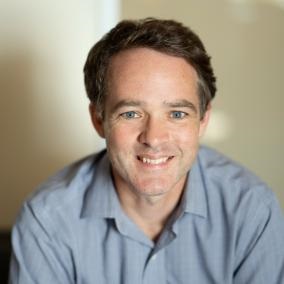
We are pleased to announce that Professor Dave Donaldson, the Class of 1949 Professor of Economics at the Massachusetts Institute of Technology, will deliver the conference keynote address.
He is a renowned economist whose teaching and research deals with various aspects of trade, including the impact of improvements in transportation infrastructure. His work includes “Railroads of the Raj: Estimating the Impact of Transportation Infrastructure” (American Economic Review, 2018) and "Railroads and American Economic Growth: A ‘Market Access’ Approach" (Quarterly Journal of Economics, 2016, joint with Rick Hornbeck).
He has received numerous prestigious awards including the 2017 John Bates Clark Medal given by the American Economic Association to the US-based economist “under the age of forty who is judged to have made the most significant contribution to economic thought and knowledge.” He has served as a co-editor at Econometrica and American Economic Journal: Applied Economics and is a Fellow of the Econometric Society and a member of the American Academy of Arts and Sciences.
A native of Toronto, Canada, he obtained an undergraduate degree in physics from Oxford University and a PhD in economics from the London School of Economics.
Conference Schedule
The conference runs from early afternoon on Wednesday to late afternoon on Friday. Fees for the conference include access to all sessions, lunch on Wednesday, Thursday and Friday, a reception on Wednesday evening, a dinner cruise on Lake Michigan on Thursday evening, and mid-morning and mid-afternoon refreshment breaks.
View the conference program in Conference Maker
Accomodations
There are six major hotels in downtown Evanston, which are all 20-30 minutes’ walk from the conference venue. The school is located 10 minutes closer to the hotels.
|
Walk Time to Conference |
Breakfast Included? |
Nightly Rate including tax (14.5%) |
|
|
19 minutes |
No |
$278 |
|
|
20 minutes |
No |
$269 |
|
|
23 minutes |
Yes |
$339 |
|
|
23 minutes |
No |
$234 |
|
|
27 minutes |
No |
$209 |
|
|
30 minutes |
Yes |
$264 |
All properties offer complimentary Wi-Fi.
Rate information based on search on April 15 for arrival on June 25 and departure on June 27. Shared rooms at similar nightly rates are available that will lower the cost. This may be attractive for graduate students and others who can coordinate their travel.
Location
Travel and Directions
Chicago O'Hare International Airport is the closest and most convenient airport to the conference site. Taxi and public transportation is available, with a travel time of 35-40 minutes. Chicago Midway Airport is further away, but there is a public transportation link.
The School will be held in the Ruan Conference Center on the lower level of The Transportation Center building at 600 Foster Street.
https://maps.northwestern.edu/facility/65
The conference will be held in the Kellogg Global Hub (business school building), 2211 Campus Drive, Evanston.
https://maps.northwestern.edu/facility/659
For detailed travel information including travel from the airports see:
https://economics.northwestern.edu/about/contact/directions.html
Weather
Chicago can be hot in late June. The average high temperature is 83 F (28 C) and the average low 64 F (18 C). It is often quite humid. However, the conference is right on the shore of Lake Michigan and there is usually a cooling breeze in the afternoon. All conference facilities are air conditioned. Thunderstorms are not uncommon, but any rainfall is usually brief.
Disability Statement
The school and conference venues are equipped with elevators and fully accessible in compliance with the Americans with Disabilities Act.
Wi-Fi
Eduroam is available and additional Wi-Fi access will be made available for those who do not have access to Eduroam.
Bring the Family / Stay for a While
Evanston is located on the shores of Lake Michigan, 12 miles north of downtown Chicago. In Evanston, you can:
- Go to the sandy beaches
- Relax on the beautiful lake front campus
- Stroll through neighborhoods of Victorian homes
- Enjoy a diverse set of dining options
- Take the train for an evening under the stars at the outdoor music festival at Ravinia Park
There are public transportation links to downtown Chicago by commuter train and subway/elevated mass transit rail. In Chicago you can:
- Visit the world-famous Art Institute of Chicago and other museums
- Go to the viewing deck of one of the skyscrapers
- Take a boat trip on the river or a walking tour to view the world-famous architecture
- Visit a blues club
- See a baseball game on the north or south sides
- Visit Millenium Park and view Anish Kapoor’s “Cloud Gate” (better known as “The Bean”)
- Walk in the lake front parks and visit the free zoo
- Walk out on Navy Pier and perhaps take a cruise on Lake Michigan
- Travel to suburb Oak Park to view the famous houses by architect Frank Lloyd Wright
- Go shopping on State Street or Michigan Avenue
- Attend a theatre production
- Eat in world class restaurants
- Take an extended trip before or after the conference to the shores of Lake Michigan in Wisconsin, Indiana or Michigan

